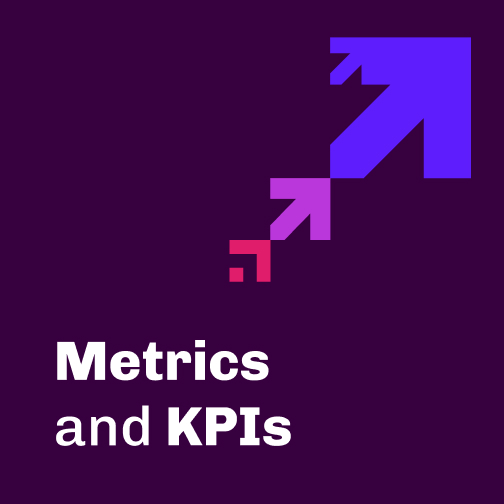Good Governance, Delegation, and Accountability Policy
Policy Statement
The School is committed to upholding the highest standards of good governance by ensuring clear delegation of authority and rigorous accountability at all levels. Our policy aims to align with the Higher Education Code of Governance, guiding decision-making processes, defining responsibilities, and fostering transparency. This commitment applies to all governance tiers, reinforcing integrity and excellence in fulfilling our educational mission.
Principles
- Transparency: Promoting open and accessible governance processes that are clear to all stakeholders.
- Accountability: Ensuring all actions and decisions are subject to appropriate oversight and accountability.
- Integrity: Conducting all activities with integrity and in accordance with our ethical standards.
- Clarity of Roles: Defining roles and responsibilities precisely to enable effective governance.
- Empowerment: Empowering individuals and committees to act within the scope of their designated authority.
- Responsibility: Accepting responsibility for decisions and actions taken under delegated authority.
- Oversight: Implementing robust mechanisms for monitoring and reviewing decisions and actions.
- Ethical Conduct: Upholding the principles of ethical conduct in all governance matters.
- Equity: Ensuring fair and equitable treatment throughout the governance structures.
- Professionalism: Demonstrating professionalism in the exercise of duties and responsibilities.
- Review and Adaptation: Regularly reviewing policies and procedures to improve and adapt governance practices.
- Engagement: Engaging stakeholders in governance processes to enhance mutual understanding and collaboration.
Regulatory Context
This Policy has been developed in line with the applicable laws, regulations, regulatory advice, and sector best practices, including the following:
| Authority | Name | Url |
|---|---|---|
| UK Government |
Higher Education and Research Act 2017 (HERA)
A UK legislation that reformed the higher education and research sector, particularly by establishing the Office for Students and UK Research and Innovation. |
Redirect |
| Office for Students (OfS) |
Regulatory Notices and Advice
Regulatory notices are additional information about OfS' regulatory requirements and are part of the regulatory framework. Regulatory advice helps providers understand and meet OfS requirements. |
Redirect |
| Quality Assurance Agency (QAA) |
The Quality Code
This code represents a shared understanding of quality practice across the UK higher education sector, protecting public and student interests and championing the UK's reputation for quality. |
Redirect |
| Advance HE |
Code of Governance for Universities
A code of governance that sets out the principles and standards that universities in the UK should follow. |
Redirect |
| Committee of University Chairs |
The Higher Education Code of Governance
A code aimed at ensuring the highest levels of governance at higher education institutions. |
Redirect |
Adherence to High Standards
The School aims to follow the Higher Education Code of Governance, as established by the Committee of University Chairs. This Code guides decision-making, delegation, and accountability to ensure the highest standards of transparency and governance. Following this Code will ensure the School operates with transparency and accountability, adhering to established governance standards. |
Ensuring Transparent Governance
We will:
These actions will help build trust and credibility, ensuring that all stakeholders are informed and engaged in the governance process. |
Defining Roles and Responsibilities
We will:
Clearly defined roles and responsibilities prevent misunderstandings and ensure that governance tasks are executed efficiently and effectively. |
Implementing Effective Decision-Making
We will:
Streamlined and effective decision-making processes will improve operational efficiency and align decisions with the institution’s objectives. |
Upholding Accountability
We will:
Accountability mechanisms will help maintain high standards of integrity and ensure that all governance activities are conducted ethically and responsibly. |
Aligning with the Code of Governance
We will:
Adhering to the Code will ensure that our practices meet high standards and regulatory expectations, supporting overall institutional effectiveness. |
The following metrics will be measured and regularly reviewed as key performance indicators for the School to ensure the effectiveness of this policy and associated operations.

Annual Governance Self-Assessment
Complete an annual self-assessment of governance practices with 100% participation from relevant bodies. Self-assessment helps evaluate the effectiveness of governance structures and practices. |
Board Meeting Attendance Rate
Achieve a 95% attendance rate for all board members at scheduled meetings annually. High attendance ensures active participation in decision-making and oversight, reflecting commitment to governance responsibilities. |
Clarity of Delegation
100% of delegation documents will clearly define roles, responsibilities, and reporting lines within 30 days of delegation. Clear delegation prevents overlap and confusion, ensuring accountability and effective management. |
Compliance with Legal and Regulatory Requirements
Achieve 100% compliance with all legal and regulatory requirements as per annual audits. Ensures adherence to legal standards and protects the institution from potential legal issues. |
Documentation of Decision-Making Processes
Ensure 100% of major decisions are documented with clear rationale and outcomes. Proper documentation supports transparency and accountability in decision-making. |
